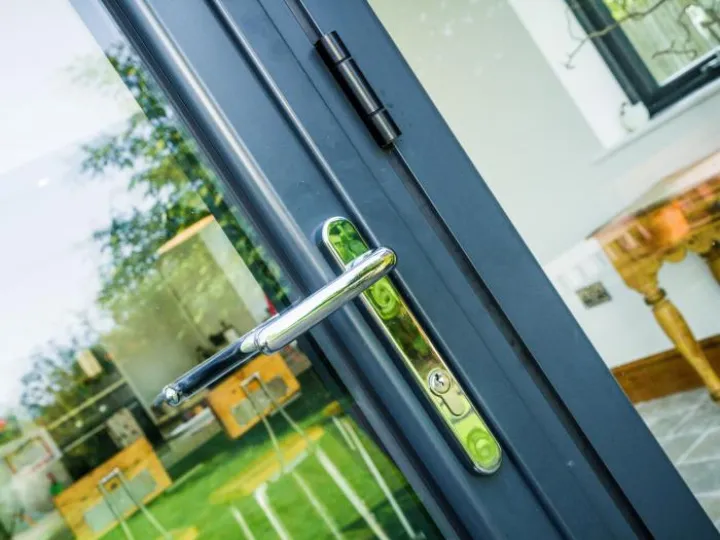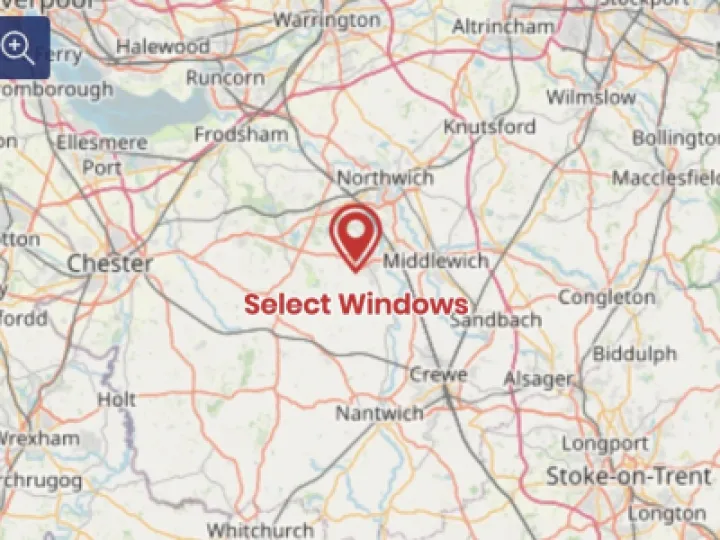PAS 24 door and window security
Security is one of the main issues when replacing a door or window in your home or business. Most suppliers will offer door and window products that meet the PAS quality standard.
We explain what a PAS 24 certificate means and why the Publicly Available Specification (PAS) is an industry standard. It ensures that door and window manufacturers sell products that meet a quality benchmark. PAS is overseen by the British Standards Institution (BSI), which manages PAS standards.
A PAS 24 certificate ensures that doors and windows meet the minimum security standards set by an accredited body. It is a minimum standard for testing the security performance of windows and doors to ensure they are robust enough to resist a concerted attack by an opportunist burglar.
Organisations creating PAS 24 are the Association of Chief Police Officers, Association of Composite Door Manufacturers, BRE, British Woodworking Federation, Council for Aluminium in Building, Door and Hardware Federation, Glass and Glazing Federation, Master Locksmiths Association, RIAC Authority, Steel Window Association and others.
The latest version of PAS 24, PAS 24:2016, came into effect in early 2016, superseding the previous version, PAS 24:2012. The newest standard was developed with input from several organisations working together to raise the bar on security levels for homes and businesses.
Qualifying for a security certificate
To qualify for a PAS 24:2016 certificate, a manufacturer must submit its products to an independent testing company certified by the United Kingdom Accreditation Service (UKAS). UKAS is the only national accreditation body recognised by the UK government to assess organisations that provide certification, testing, inspection and calibration services.
Accreditation by UKAS demonstrates the competence, impartiality and performance capability of evaluators. Manufacturers of doors and windows can submit their products to UKAS-accredited evaluators who then test to PAS 24 and its 'fit for purpose' standards.
The factory and the manufacturing processes are also examined by a UKAS-accredited certification body to ensure they reach the appropriate standards. It doesn't end there. Products are periodically tested to ensure they comply with the regulations. If a door or window manufacturer changes any part of a product, they must inform the certifier, who will usually order a retest of the product.
Strength tests for doors and windows
Product testing is typically conducted in a specialised laboratory under controlled conditions. The tests are very rigorous. In the PAS 24 test, windows and doors must meet minimum standards in three key areas:
Security: How long a door or window keeps intruders out.
Weather: How well a product withstands cold and rain.
Glazing: How easily window panes are prised from the frame.
They include a mechanical loading test to replicate someone trying to prise open the window or door. Force is applied to the product at multiple points of contact. Edges are pulled in opposite directions, and forces are then involved directly with a hydraulic press to check for weakened areas.
Doors can be tested for shock resistance by swinging a heavyweight object against them several times to simulate the door being struck with force across a wide area, thereby assessing their overall resistance to shock. In another test, a metal ram is pulled back and released against the product several times. The shock of the ram replicates a strike with a concentrated force in a small area.
Testing for security
Test procedures are extensive, and products must meet the BSI performance criteria, which are designed to mimic an attack by an opportunistic burglar using tools that are easy to conceal. To test the security of components, a qualified engineer is given 15 minutes to break open the lock cylinder using the most common lock-breaking tools and methods. Lock-breaking tools set out by the BSI can include a bladed cutting tool to see if a significantly sized hole can be made in the door. The door can be tested anywhere, but one attempt must be within 400mm of the lock. The door will fail if the blade makes a hole greater than 50mm in diameter within a set time.
Tests for weatherproofing
It's not enough for a door or window to protect against deliberate, wilful damage by a burglar trying to break in. It must also be suitable for everyday wear and tear. One of the primary purposes of a door or window is to provide access to the outside while keeping out bad weather.
To ensure that products are weather-resistant, they undergo rigorous testing. Weather testing includes checks on air permeability, water tightness and resistance to wind load. BS 6375 is a British Standard that outlines the performance levels required for the UK market in terms of air permeability, water tightness, and wind pressure.
The window or door may be placed in a pressure chamber with air pressure increased to simulate wind blowing against the product. Air permeability, air leakage, or air tightness measures the ability of a window or door to resist the uncontrolled flow of air, which is essential for the overall building's energy efficiency.
Products are tested for water resistance by subjecting them to a strong jet of water for several minutes before checking for leakage. Leakage is defined as any appearance of uncontrolled water on the inner face of any part of the product.
Choosing a door and window installer
PAS 24 is a minimum standard; therefore, no grading system is in place. A window and door either pass the tests and receive accreditation or fail without an award. It is essential to understand that window and door installation companies usually buy products from profile manufacturers. It is up to them to ensure the products they buy meet the highest standards.
Most installation companies install and fit products to specifications laid down by the profile manufacturer, so fitters must be adequately trained to install the products they use. Door and window installers offer Secured by Design (SBD) products. SBD is an initiative that accredits products on behalf of the Police.
To be awarded an SBD Standard, the product must meet requirements to prevent crime, and SBD-approved products can only be manufactured with an SBD license. Although PAS 24 and SBD are independent, most SBD products meet PAS 24 standards as a minimum.
More on door & window security
Doors security in the home
Get good door locks
Make doors and windows secure
Choose an approved installer
CALL 01606 863553
for a free quote on doors and windows
Select Window Systems
Phone: 01606 863553
Email: hello@swsonline.co.uk
Visit: Unit 2, Woodford Court, Winsford, Cheshire, CW7 2RB
Cheshire doors and windows.
Window and door installations across Cheshire.
Visit Our Cheshire Showroom
Disclaimer
Select Window Systems accepts no responsibility or liability for any damages or costs of any type arising out of or in any way connected with your use of this website. Select Window Systems cannot be held liable for any actions taken in reliance on any published content, which is for information purposes only.


